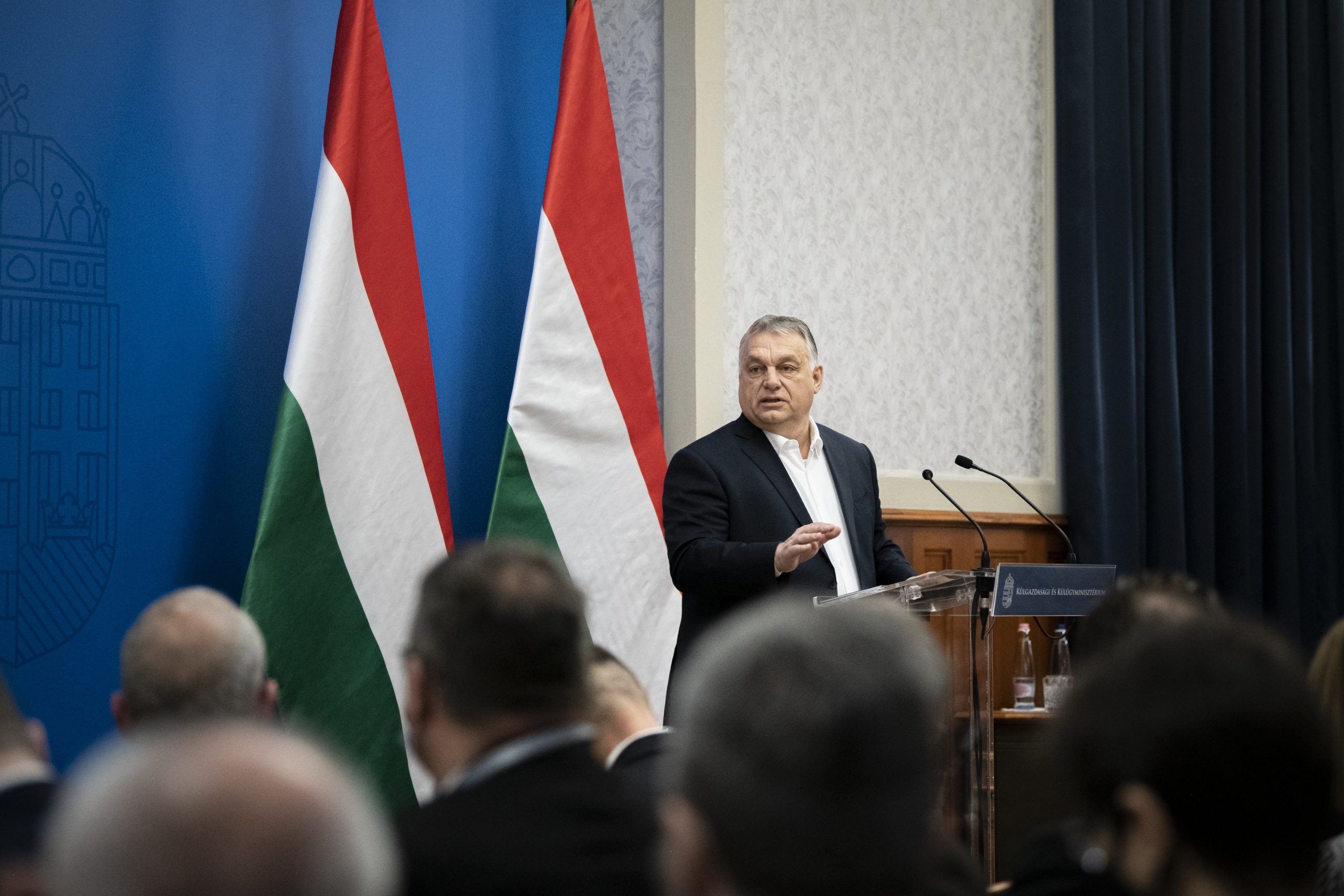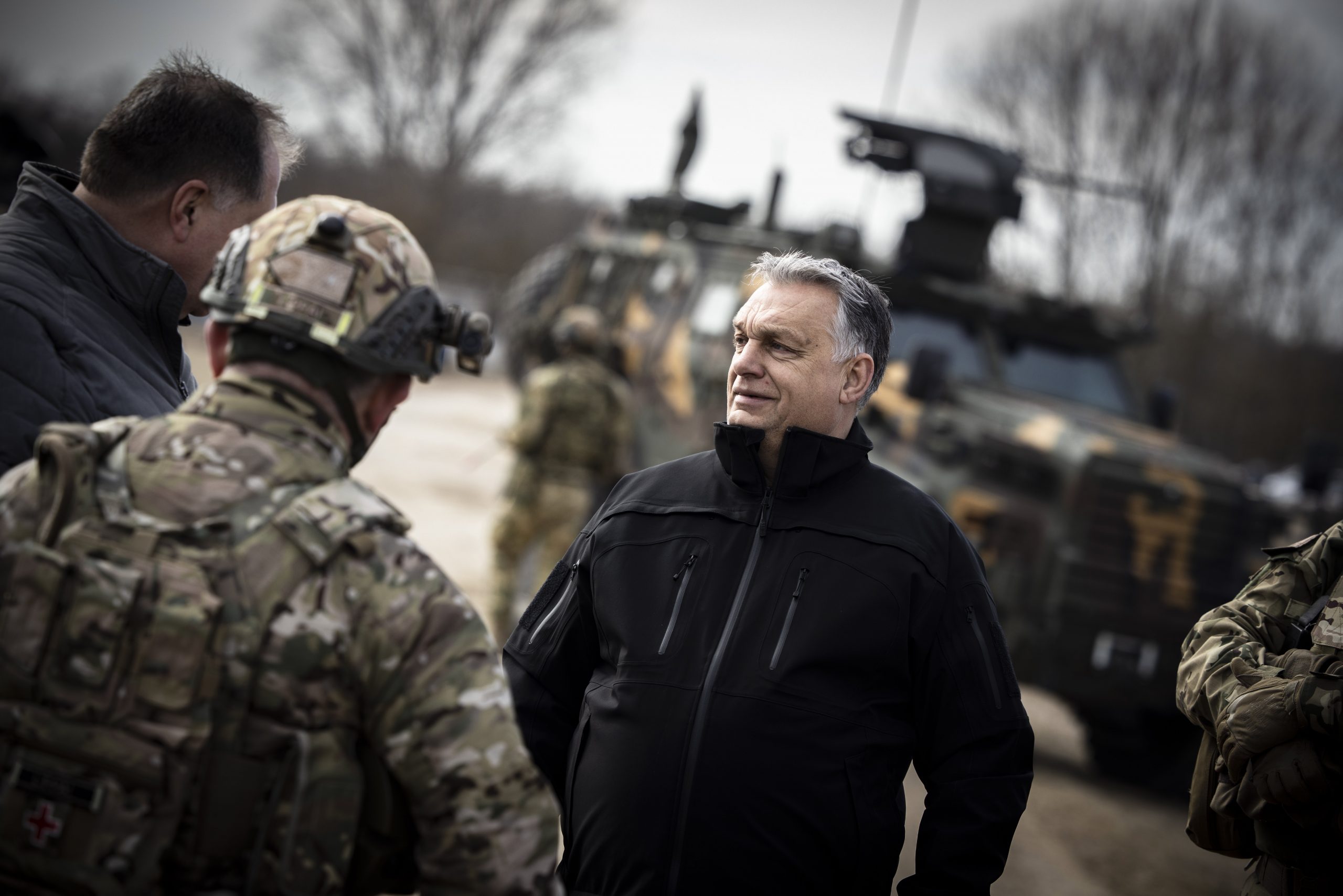
"The most important thing is for Hungary to stay out of this war," he said.Continue reading

Hungary condemns the war, but until recently, there was a balanced and fair system of relations between the Hungarians and the Russians, and now the unity of the EU is the most important thing, Prime Minister Viktor Orbán stressed in an interview with pro-government magazine Mandiner. Orbán also said that Hungary will provide a venue for the Russian-Ukrainian talks and provide humanitarian aid to Ukraine.
This article was originally published on our sister-site, Ungarn Heute.
“We are caught in the crossfire of the major geopolitical players, NATO has expanded eastward, and Russia was less and less comfortable with that. The Russians made two demands: that Ukraine declares neutrality and that NATO does not admit Ukraine. These security guarantees were not given to the Russians, so they decided to obtain them through war. This is the geopolitical significance of this war,” Orbán said in the interview.
The Hungarian Prime Minister added that the Russians want to reorder the continent’s security map and their security idea is that Russia must be surrounded by a neutral zone in order to feel safe.
Ukraine, which they have so far regarded as an intermediate zone that they could not neutralize through diplomacy, they now want to neutralize by military force. At the same time, Hungary must make it clear that war is not acceptable for any purpose and that those who choose this path are unequivocally condemned by Hungary.”
Regarding the Russian-Ukrainian peace talks, he said that given the military superiority of the Russian side, it is only a matter of time before talks begin. He stressed that Hungary was in favor of peace, condemned Russian aggression and that the talks should take place as soon as possible.
There is still a chance for peace,”
Orbán stressed.
Asked what kind of person he thinks Putin is, Orbán said, “Whatever I have agreed with him so far, he has always kept to it, and so have we. Hungarian-Russian relations were balanced and fair until recently.” He also spoke about why he had chosen an eastern “opening.”
In preparation for winning the election, I contacted President Putin and the Chinese leadership back in 2009. I thought that once we were in government, we would have to face the realities of world politics that occurred after the 2008 financial crisis. I had expected that the financial crisis would hit the Western world, especially the European Union, but not the Chinese, so the process of China taking over the leadership of the world economy would accelerate. Hungary had to prepare for this new world order. Thus, after the election victory in 2010, we were able to start government negotiations in partnership with the Chinese and the Russians.”
Regarding the EU sanctions against Russia, he said that the beginning of the war created a new situation for Hungary as well, in which Hungary’s goals and interests had to be redefined.
As for sanctions, we will not veto or prevent the EU from imposing sanctions on Russia. The unity of the EU is the most important thing now. As for post-war bilateral relations, one thing is certain: Russia will continue to exist after the war. And Hungary and the European Union will have interests after the war. There is no argument for breaking off our energy cooperation with Russia,”
the Prime Minister said, adding that EU leaders had also made it clear that sanctions would not affect energy supplies from Russia, which would destroy the European economy.
I know what strategic calm is: to speak little, but to speak precisely and responsibly.”
On aid to Ukraine, the Prime Minister said: “Hungary is helping in the negotiations by delivering gasoline, diesel, food, and basic supplies to Ukraine and taking in all those who have to flee the war.”
Asked what had been the biggest challenge of his government, the Prime Minister said that the most difficult moments had always been the crises.
If you look back at our government, we’ve been through everything since 2010: financial crisis, red sludge, floods, Crimean War, migration crisis, coronavirus, Russian-Ukrainian war. These are our last twelve years. If there were a study of crisis management, we would already have four or five diplomas in it. We live in an age of danger, a time of peaceful creation that has not yet been bestowed upon us,”
Orbán concluded.
Source: Mandiner
Featured image: Prime Minister Viktor Orbán will hold a border inspection in Hajdúhadháza on February 26, 2022. Photo by Zoltán Fischer/MTI/Prime Minister’s Press Office